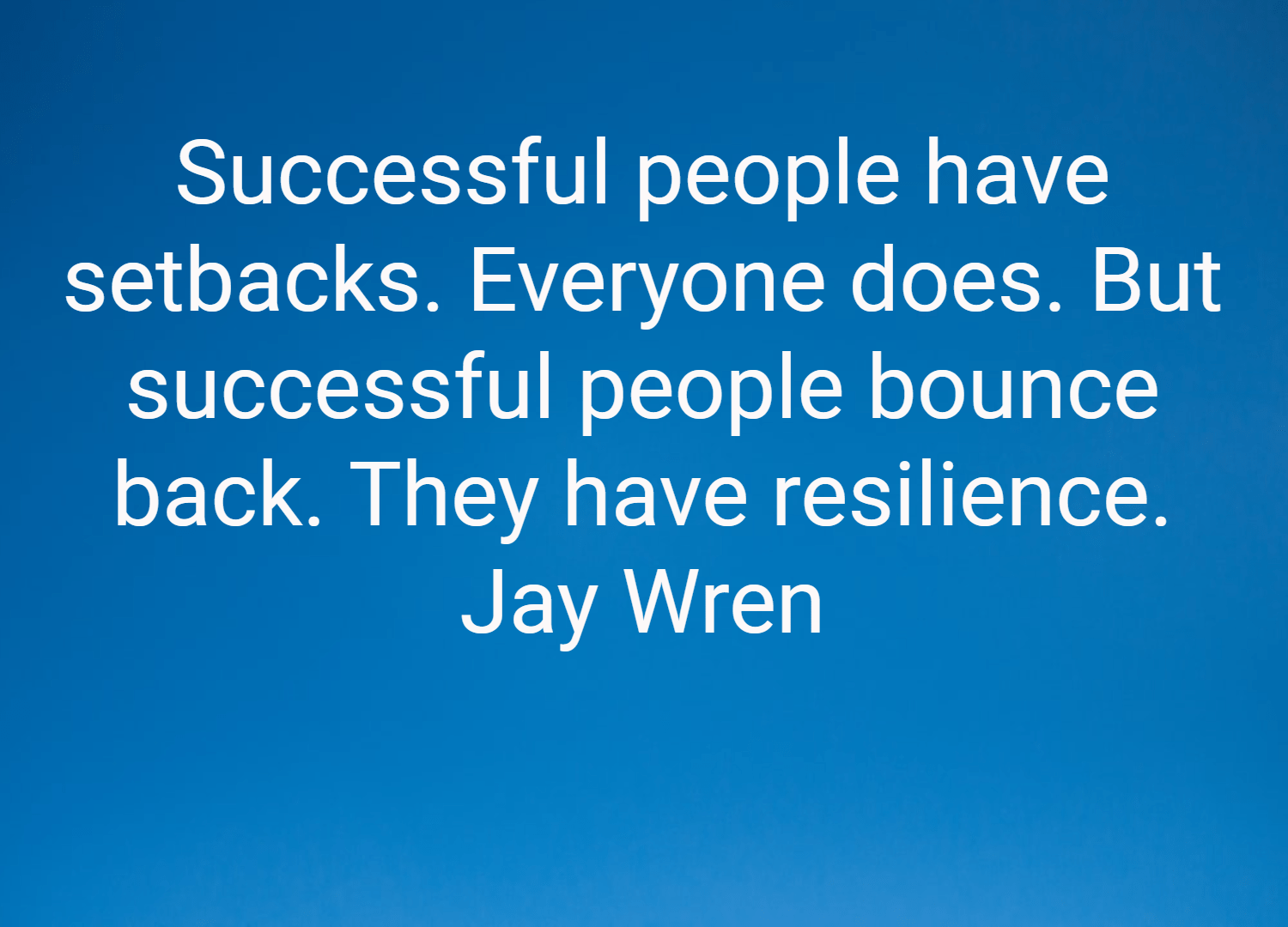Successful people have setbacks. Everyone does. But successful people bounce back. They have resilience.
~ www.jaywren.com
How is it that some people can overcome setbacks while other people can’t? Are there skills for resilience that everyone can learn?
Five Obstacles to Resilience
- Fear
- Pride
- Confusion
- Procrastination
- Resentments
Here are ways to overcome those five obstacles.
Fear
When we have setbacks in threatening circumstances, it is natural to experience fear.
Fear can shut us down mentally and block our willingness to bounce back.
Dealing with fear starts with an understanding that fear is in our head. We scare ourselves with the way we think.
If you are continually struggling with fear, find knowledgeable, positive mentors who can help you make great decisions and build your confidence to act on your setbacks.
Pride
Pride is a healthy view of our accomplishments. We find satisfaction in our achievements and the people with whom we associate. Pride gives people confidence.
Other the other hand, when pride covers our insecurities, it prevents us seeing our role in our problems.
To recover, we don’t have to swallow our pride. We don’t have to be ashamed or embarrassed for our mistakes. We just need to recognize our role in our setbacks and work to correct those mistakes.
Confusion
To recover from setbacks, we need to understand what has happened to us and what we need to do to bounce back.
Confusion is especially common when the things we were doing have stopped working. Try as we may to use old skills, they fail us. We can’t bounce back until we recognize the problem and develop new skills and resources to become resilient.
Procrastination
Ugh. Procrastination is an annoying reluctance to do the things that will correct our problems.
The way to overcome procrastination is to break the process to recovery into small, individual steps. Just do at least one small thing. Doing one small thing has two potentially positive effects on recovery. A single step each day adds up as we work toward solving our problems. Furthermore, doing just one step often leads to doing all the steps to correct a problem and put the work behind us.
Resentments
Resilience is not about getting even with people who have harmed us. It’s about getting ourselves back on track.
Holding resentments or grudges hold us back from moving on with our lives. They are obstacles to resilience.
Grudges are simply a way to feel superior to people who have harmed us. We ruminate on how we can set them straight. Furthermore, resentments can become destructive obsessions.
The stress of a grudge not only blocks us mentally, it damages us physically. The loss of energy from holding grudges makes it harder from us to work on solutions. Long-term stress from grudges creates mental and emotional problems.
Letting go of grudges and focusing on rebuilding relationships is a powerful way to bounce back from setbacks. These relationships increase our effectiveness and empower us with people who support us.



